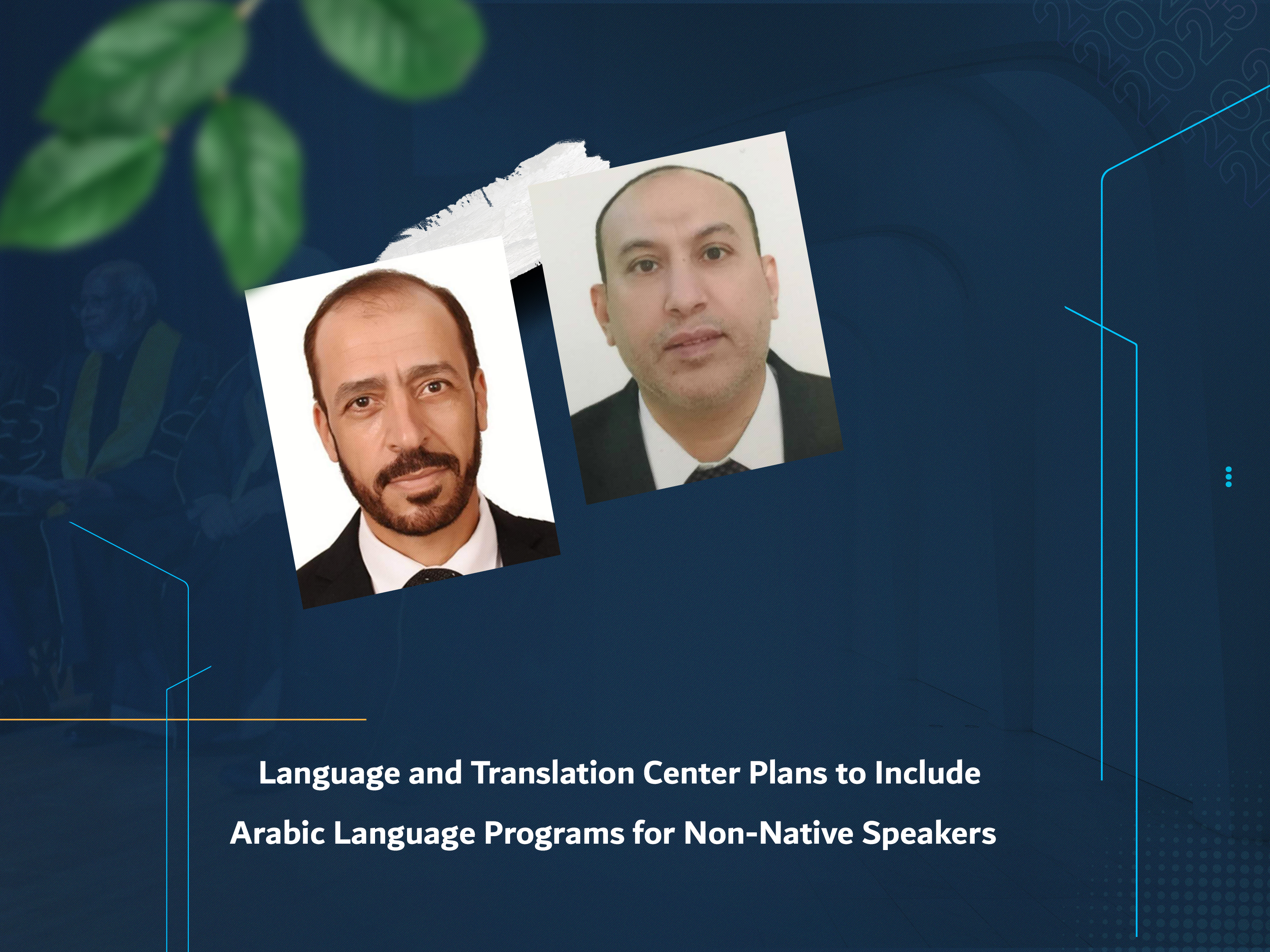Language and Translation Center Plans to Include Arabic Language Programs for Non-Native Speakers

A statement was released by Dr. Mohammad Tawfiq Abdulrahim, the Deputy Dean of the College of Arts and Deputy Director of the Language and Translation Center at the Islamic University of Minnesota, confirming that the center is working to meet the need for Arabic language programs for non-native speakers. He mentioned that these programs were developed last year and have been included in the center's plan. He emphasized that the center is ready to receive students according to the university's guidelines, and that the Arabic Language Department in the College of Arts includes a number of specialized scholars who have worked on the development of these programs.
These statements came in response to a proposal put forward by Dr. Jamal Abdulaziz Al-Othman, a faculty member in the College of Sharia, who called for studying the inclusion of a fundamental Arabic language learning program for non-native speakers, lasting for two academic semesters, with the requirement of passing the program's exams for enrollment in university departments. He also proposed the requirement of passing the Arabic language proficiency test for native speakers as a condition for registration.
Dr. Al-Othman explained that he made this proposal due to the low level of proficiency in the Arabic language among most students. He pointed out that universities in Arab countries require passing TOEFL and IELTS tests for the English language, and it is better for Arab universities to require passing Arabic language tests for students wishing to enroll in university programs.
Dean of the College of Arts and Director of the Language and Translation Center, Prof. Ismail Hamed, expressed his support for teaching Arabic to non-native speakers as part of the center's programs. The Financial Director of the center and its Secretary, Dr. Zainab Ali Basyouni, praised the proposal, describing it as excellent, affirming that this step is important for promoting the learning and dissemination of the Arabic language in the university and the local community. This decision reflects the growing interest in learning the Arabic language and Arab culture worldwide. This program will provide opportunities for students interested in learning and understanding Arabic better.
It is expected that students, faculty members, employees, and members of the local community will benefit from these programs. The Arabic language is considered an important language in many fields such as business, travel, diplomatic work, and cultural communication. By understanding the Arabic language, individuals can broaden their horizons and effectively interact with the Arab society and culture.
It is also important to qualify academic staff specialized in teaching Arabic to non-native speakers. Training programs and intensive courses should be provided to qualify teachers who will teach these programs. In addition to that, necessary resources should be provided to support the learning process, such as curricula, books, and suitable educational materials.


